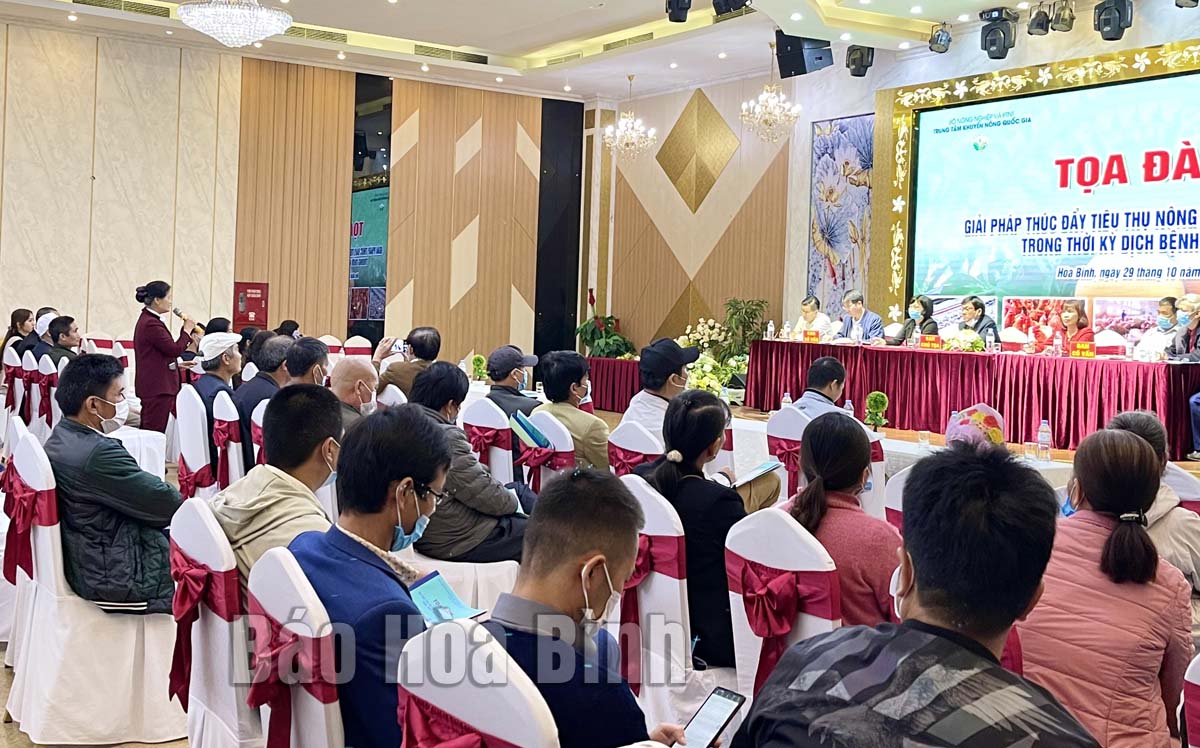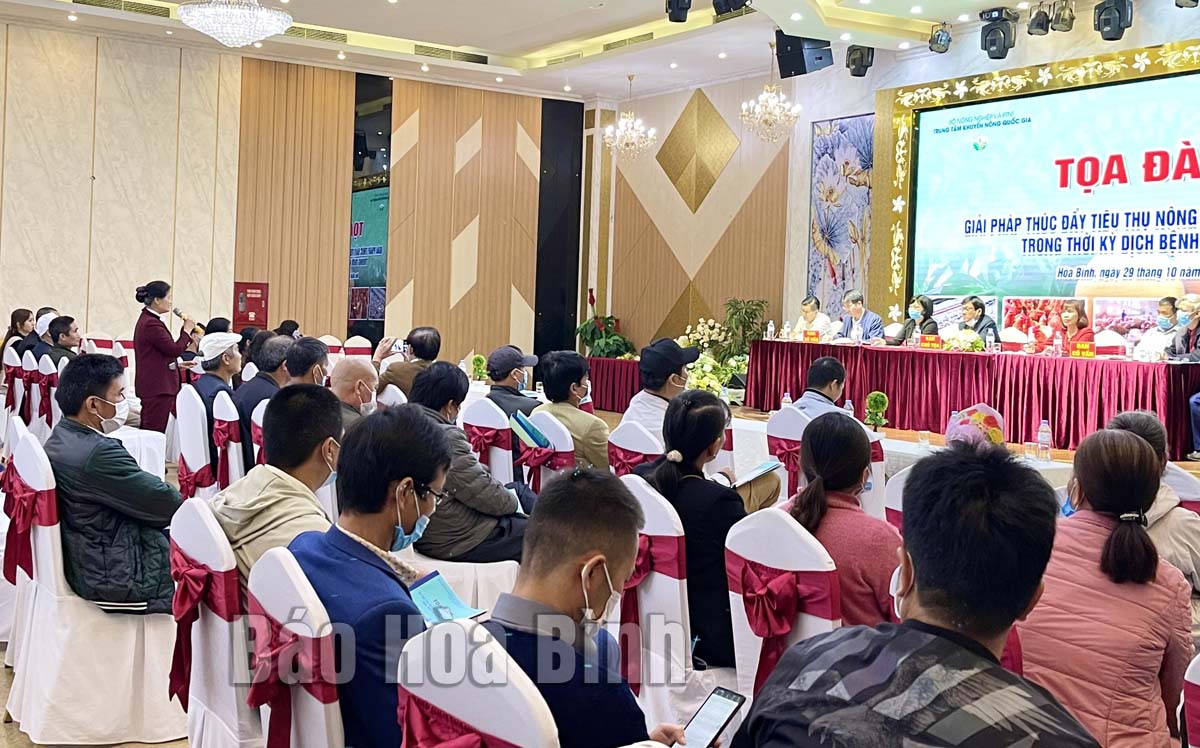
(HBO) – The Department of Agriculture and Rural Development of Hoa Binh and the National Agricultural Extension Centre (NAEC) on October 29 held a seminar on promoting sales of farm produce of the province in COVID-19 period.
At the event.
Despite difficulties triggered by COVID-19, agricultural
production of the province has remained stable since the start of this year.
Foodstuff like rice, meat and seafood meet
people’s demand and food supply has not been disrupted. Harvest time for
various agricultural products with large yield will arrive in the coming
months, while complex developments of COVID-19 may hinder sales of farm
produce.
The seminar was to realise the twin targets of
curbing COVID-19 and promoting socio-economic development. It also helped
firms, cooperatives and farmers promote their products, link with businesses,
supermarket chains and food shops in Hanoi and other localities nationwide, and
avoid a disruption of the supply chain due to the pandemic.
At the event, participants shared information on
potential, strengths and scale of cultivation areas and demand for sales, along
with cooperation and consumption market development between units and
households.
They discussed and gathered opinions on
solutions to remove bottlenecks in production and sales of farm produce in the
remaining time of the year.
Many underlined obstacles facing cooperatives
and groups in sales of farm produce, particularly amid COVID-19.
Representatives of production units hoped to
receive support for prompt and efficient sales of farm produce. They pledged
that all products are grown under VietGAP standard and some of them recognised
as the province’s OCOP goods. Participants also received guidance to put their
farm produce on sale at the Postmart.vn e-commerce market.
At the end of the seminar, leaders of the provincial
Department of Agriculture and Rural Development affirmed that the department
will create favourable conditions for firms and investors seek chances for
long-term cooperation.
In addition, it will support cooperatives and
units to better agricultural production processes, especially high technology
and organic ones, in a bid to improve quality and offer safe products to
consumers./.
According to data from the Hoa Binh Provincial Party Committee, the industrial production index for the first six months of 2025 is estimated to have increased by 20% compared to the same period last year. This marks the highest year-on-year growth rate for this period since 2020.
In the first six months of 2025, Hoa Binh province’s export turnover was estimated at 1.145 billion USD, marking an 18.11% increase compared to the same period in 2024. Import turnover was estimated at $ 804 million, a 17.15% increase, which helped the province maintain a positive trade balance.
The lives of the ethnic minority farmers in Tan Lac district have gradually improved thanks to the new directions in agricultural production. This is a testament to the collective strength fostered through the professional associations and groups implemented by various levels of the district’s Farmers’ Union.
With the motto the "product quality comes first,” after nearly one year of establishment and operation, Muong village’s Clean Food Agricultural and Commercial Cooperative, located in Cau Hamlet, Hung Son Commune (Kim Boi district), has launched reputable, high-quality agricultural products to the market that are well-received by consumers. The products such as Muong village’s pork sausage, salt-cured chicken, and salt-cured pork hocks have gradually carved out a place in the market and they are on the path to obtaining the OCOP certification.
In the past, the phrase "bumper harvest, rock-bottom prices" was a familiar refrain for Vietnamese farmers engaged in fragmented, small-scale agriculture. But today, a new spirit is emerging across rural areas of Hoa Binh province - one of collaboration, organisation, and collective economic models that provide a stable foundation for production.
Maintaining growing area codes and packing facility codes in accordance with regulations is a mandatory requirement for agricultural products to be eligible for export. Recently, the Department of Agriculture and Environment of Hoa Binh province has intensified technical supervision of designated farming areas and packing facilities to safeguard the "green passport" that enables its products to access international markets.



